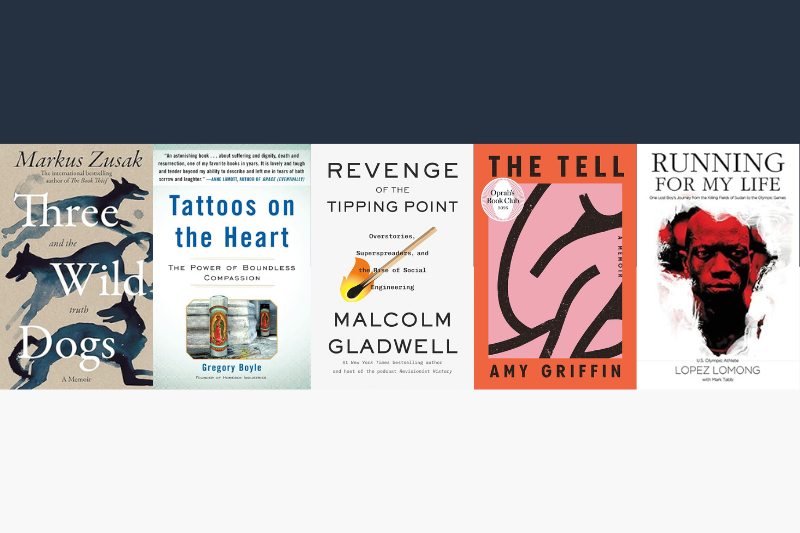Are you humble? Are you open-minded?
To paraphrase Farnam Street: Before you smugly slap an open-minded sticker on your forehead, consider this: close-minded people would never consider that they could actually be close-minded. In fact, their perceived open-mindedness is what is so dangerous.

In fact, 95% of people rated themselves as more open-minded than average, which clearly cannot be true.
After reading these anecdotes, I hope you are second-guessing your answers.
As we will get into it, humility is becoming an increasingly hot-topic when it comes to leadership. Part of the reason why is because of an interesting paradox: We don’t reward humility, yet we expect our leaders to have it; and when they do have it, they are more effective leaders.
What is humility?
Let’s start at the top, what is humility?
Humility is not about self-deprecating behaviors or attitudes. Humility is the esteem with which you regard others, and in particular their ideas.
This falls right in line with the definition of open-mindedness: being willing and within limits to transcend a default cognitive standpoint in order to take up seriously the merits of a distinct cognitive standpoint.
Combining these two ideas, we get a new concept: Intellectual Humility
Intellectual humility has four components:
-
Having respect for others viewpoints
-
Not being intellectually overconfident
-
Separating one’s ego from one’s intellect
-
Willingness to revise one’s own viewpoint
Did you catch this last bit? Part of being intellectually humble is to have the ability to separate yourself from your ego, admit that you are wrong, and change your perspective.

Now, being intellectually humble is not about being a pushover or caving every time your thoughts are challenged. Instead, intellectual humility is a method of thinking. To quote Brian Resnick, “It’s about entertaining the possibility that you may be wrong and being open to learning from the experience of others…[IT] is about being actively curious about your blind spots.”
Now consider: Are you intellectually humble?
Why is intellectual humility important for leaders?
History shows that we tend to choose political and business leaders who are confident, adamant, and unflinching.
In fact, Shane Snow, a thought leader on intellectual humility, states the obvious: “We praise kids for getting the correct answers, rather than for exploring and questioning. We promote the employee who suggests the safe idea, rather than the people who push the envelope. (Studies show that people with creative ideas are much less likely to be put into leadership than people with run-of-the-mill ideas.) In politics, we reward the candidates for ‘winning’ the debate, rather than learning and changing their minds in light of the debate.”
But, despite our cultural push for being seen as being right, research indicates that the leadership we need is characterized by the opposite: cognitively flexible, a seeker of truth rather than a seeker of being right.
Let me give you several examples of this.
First comes from my days as an engagement consultant at Gallup. If you aren’t familiar, Gallup has 12 items that they use to assess employee engagement. While Gallup won’t admit which of these questions is the strongest driver of engagement, in one analysis that I did across nine companies and almost 100,000 employees, I found that if employees “strongly agreed” to the item, “My opinions count,” 93% of them were engaged. Do you think an employee is going to feel like their opinions count if a leader is not intellectually humble?
Second, comes from a study done at Google about what drives their top-performing teams to be top-performing. After millions of dollars and several years, they isolated one primary driver of top-performing teams: psychological safety (the belief that one can speak up or take risks without fear of negative repercussion). What type of leader is going to be more likely to create a climate of psychological safety: an intellectually humble leader or a non-intellectually humble leader?
Third and fourth, consider two of the best business books that I have read: Creativity, Inc. by Ed Catmull (President of Disney and Pixar Animation) and Principles by Ray Dalio (Founder of Bridgewater Associates). In each of these books, using their own language, they both state that their key to success is intellectual humility. Here are a couple of quotes:
Ed Catmull: “A hallmark of a healthy creative culture is that its people feel free to share ideas, opinions, and criticisms. Lack of candor, if unchecked, ultimately leads to dysfunctional environments.”

Ray Dalio: “You, like me, probably don’t know everything you need to know and would be wise to embrace that fact. If you can think for yourself while being open-minded in a clearheaded way to find out what is best for you to do, and if you can summon up the courage to do it, you will make the most of your life. If you can’t do that, you should reflect on why that is, because that’s most likely your greatest impediment to getting more of what you want out of life.”

Intellectually humble leaders make the best leaders because they consider and take serious the ideas of others to (1) show those they lead that they are of value, (2) see and learn from a different perspective, and (3) progress the work, team, and/or organization as they head in the direction of truth (as opposed to the direction of being “right”).
Shane Snow, goes so far to say: “The people who make the most positive difference in the world…are the ones who are able to discern when they need to change and then be brave enough to do so even when the cost is high.”
How do we improve our intellectual humility?
Resnick states: “To be intellectually humble doesn’t mean giving up on the ideas we love and believe in. It just means we need to be thoughtful in choosing our convictions, be open to adjusting them, seek out their flaws, and never stop being curious about why we believe what we believe.”
How do we get there?
Let me give you four suggestions
-
Travel – Expose yourself to new people, new cultures, new ideas
-
Read or watch fiction – this is one way to expose yourself to different cultures and ideas
-
Mindful meditation – this helps unlock our ego barrier (which is aptly defined as “that aspect of the self that has the incessant need to see itself in a positive light”)
-
Take a mindset assessment or course – Research has found that 48% of people were more intellectually humble after taking a course on it, and 70% of people get less polarized against political opponents

If you would like to take my personal mindset to see how intellectually humble you are relative to thousands of others, click here:
If you would like me to do a training, webinar, or workshop on the mindsets that drive intellectual humility, click here:
This article is the seventh article in a series of articles all about helping people and leaders become people of positive influence, people that others want to follow.
· Article 1: Why Do Organizations Miss the Mark when Developing their Leaders?
· Article 2: Becoming a More Positive Influence: Rewire Your Brain
· Article 3: Becoming a More Positive Influence: Develop a Self-Purpose
· Article 4: Becoming a More Positive Influence: Know How to Build Trust
· Article 5: Becoming a More Positive Influence: Are You the Villain?
· Article 6: Becoming a More Positive Influence: Enhance Your Emotional Intelligence











2 Responses
Great article, Ryan! It contains helpful and thought-provoking content. I will be rereading it several times to ensure I absorb everything I need to from it.
Sharon Krueger
Powerful stuff Ryan. I found the point that we need to separate our ego from our intellect especially insightful. And I love that you gave me an excuse to read more fiction! : )